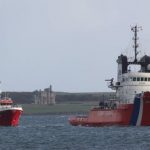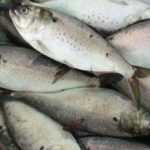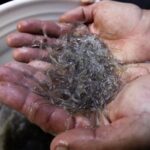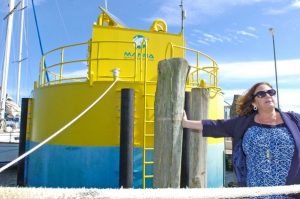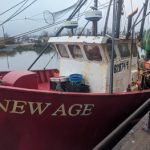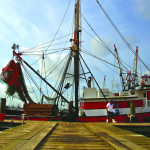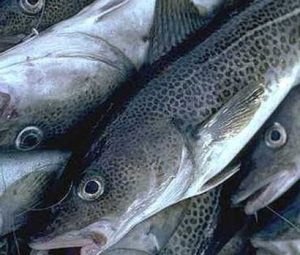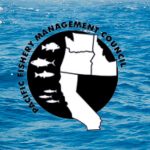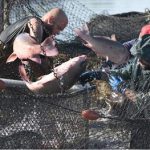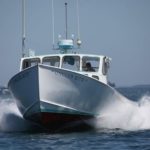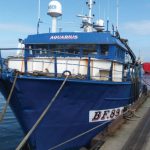Tag Archives: New England Aquarium

Experts track right whale behavior in new trouble spot
Scientists from the U.S. and Canada have returned from a North Atlantic right whale survey trip in the southern Gulf of St. Lawrence where they found dense reserves of zooplankton that have drawn 70 or more of the critically endangered marine mammals to the region this summer. They now expect the right whales to move farther north in the coming summers to follow the movement of the food they consume,,, Many of the right whales that visit Cape Cod Bay and south of the islands in the late winter and early spring migrate northward as they follow the movement of zooplankton, especially a rice-sized copepod called calanus. >click to read< 09:58
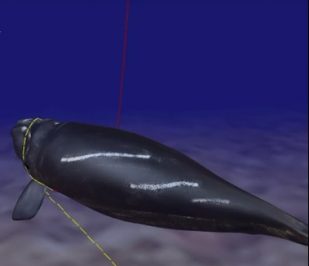
Virtual whale entanglements seen as a learning tool
Scientists know for sure that commercial fishing rope entangles and eventually can kill North Atlantic right whales. But with the aid of technology to simulate an entrapment, scientists want to better understand and ultimately identify new, less harmful gear options. “We don’t want to have solutions that are good for whales but bad for fishermen,” said biologist Timothy Werner, who co-authored a recent study about the interactive simulation technology at the Anderson Cabot Center for Ocean Life at the New England Aquarium in Boston. >click to read<19:26
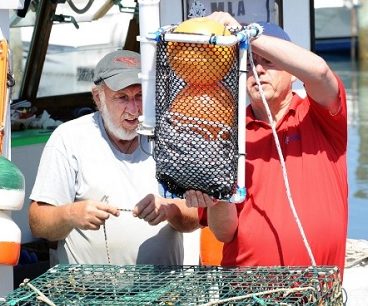
Ropes are latest flashpoint in tug of war over right whales
The lobster industry is willing to consider switching to weaker rope to protect the endangered right whale from deadly entanglements, but whale defenders say that doesn’t go far enough to help a species that can’t bear even one more death. A team of scientists, regulators, animal rights groups and fishermen met this week in Providence to review proposals,,, The team is advising the National Marine Fisheries Service on how to prevent whales from getting entangled in fishing gear as they migrate, feed and mate as they travel back and forth along the East Coast of the United States and Canada. >click to read<11:54

Scientists and fishermen team up to help save North Atlantic right whale
Whale researchers and fishermen are out at sea together on a two-week mission, combining efforts to help save the endangered north Atlantic right whale. These two worlds have usually stayed far apart, but for the first time scientists are onboard a crab boat to do their field work. Crab fisherman Martin Noel, captain of the Jean-Denis Noel boat in Shippagan, agreed to take scientists out in the gulf to help them carry out their research this year. “We don’t want to be called whale killers,” Noel said. “We want to be called fishermen that are implicated in the solution.” All season, fishermen begged Ottawa to involve them in fisheries management. They felt the federal government was imposing overly strict measures without consultation with industry. >click to read<09:28

Booker, Carper, Nelson Introduce Bicameral Bill to Establish Grant Program for Right Whale Conservation
U.S. Senators Cory Booker (D-NJ), Tom Carper (D-DE), and Bill Nelson (D-FL), along with Senators Bob Menendez (D-NJ) and Kirsten Gillibrand (D-NY) have introduced a bill to protect the highly endangered North Atlantic right whale. Booker is a member of the Senate’s Environment and Public Works Committee, Carper is the top Democrat on the Environment and Public Works Committee, and Nelson is the top Democrat on the Senate’s Commerce Committee, which oversees ocean policy. Rep. Seth Moulton (D-MA), along with Reps. Raul Grijalva (D-AZ), Jared Huffman (D-CA), and Bill Keating (D-MA), has introduced a companion measure in the House of Representatives. >click to read<18:46
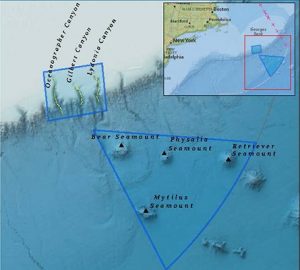
The High-Stakes Battle Over Obama’s Atlantic Ocean National Monument
Mining and drilling for oil are already banned in the Northeast Canyons and Seamounts Marine National Monument, established by former president Barack Obama in 2016 as the first marine monument in the Atlantic Ocean, 150 miles off the coast of Cape Cod. Within five years, too, all commercial fishing will be phased out – or, at least that was the plan. A federal judge is now weighing the fate of those protections in a lawsuit originally filed in March 2017 by a coalition of New England fishing groups – and it has led to a rare case of President Donald Trump defending his predecessor’s authority. >click to read<10:27
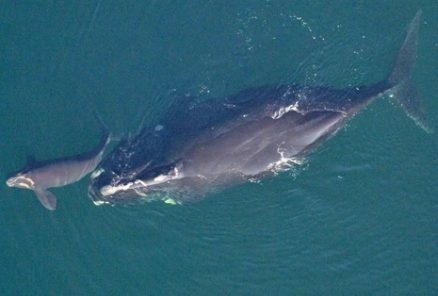
Gear is in wrong place for right whales, scientists say
Speaking at the Maine Fishermen’s Forum on Friday,,, The NOAA Fisheries Large Whale Take Reduction Team recently established separate working groups to study two proposals to reduce the risk of entanglement: splicing several 1,700-pound breaking strength “weak link” sleeves into vertical lines such as those that connect lobster buoys to traps; and removing those ropes altogether by requiring the use “ropeless” fishing gear. Those working groups will focus on whether either solution is technologically feasible, whether it will actually work for fishermen, and whether it can be cost effective for fishermen.,, >click to read<10:32
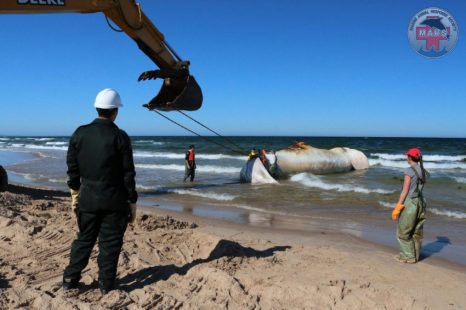
Here’s why 12 right whales died in Canadian waters — and why more will die if nothing is done
A macabre joke in the field is that there are more North Atlantic right whale researchers than actual North Atlantic right whales. The scientific community is tight-knit: on top of the hours many of them spend sardined together on research boats and survey planes, a consortium dedicated to studying and conserving the species gathers every year for a meeting that tips further towards family reunion than your average academic conference. Still, as biologists, conservationists and policy-makers began filling an auditorium at St. Mary’s University very early on a Sunday morning in late October, the emotional register of the meeting felt unusually charged. Attendees greeted each other with bracing hugs. click here to read the story 12:27
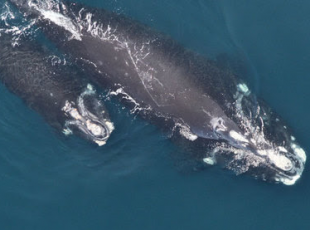
Officials: Whales, After Deadly Year, Could Become Extinct
Officials with the federal government say it’s time to consider the possibility that endangered right whales could become extinct unless new steps are taken to protect them.,,, The situation is so dire that American and Canadian regulators need to consider the possibility that the population won’t recover without action soon, said John Bullard, the Northeast Regional Administrator for NOAA Fisheries. click here to read the story 09:39
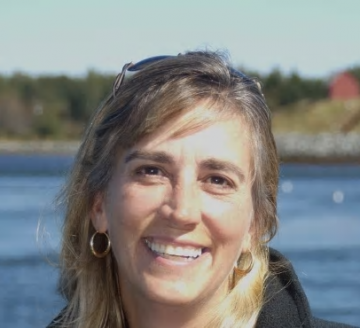
Feces of entangled North Atlantic right whales show ‘extreme suffering’
A new study offers a glimpse into the state of mind of North Atlantic right whales when they are trapped and dying in fishing gear. By measuring hormone levels in the collected feces of the endangered whales, scientists have determined the animals’ stress levels are “sky-high.” “What it tells us is that there is extreme physical trauma and extreme suffering going on,” said Rosalind Rolland, a senior scientist at the Anderson Cabot Center for Ocean Life at the New England Aquarium and the lead author of the study. click here to read the story 14:14

North Atlantic Right Whale Consortium – scientists say Right whales could be 20 years away from certain extinction
Scientists at an annual meeting for North Atlantic right whales estimate the species has a little over two decades left to survive unless changes are made immediately. The North Atlantic Right Whale Consortium’s annual meeting was held in Halifax on Sunday, and all of the scientists spoke with a sense of urgency about the fate of these whales. This summer, at least 15 right whales died in Canadian and U.S. waters and scientists at the conference stressed that human activity is the primary cause of death for all right whales. click here to read the story 11:21
On This Day – October 8 – 1984: Ninety-four whales die after beaching in Eastham
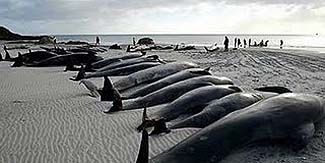 On this day in 1984, workers from the New England Aquarium began giving lethal injections to beached pilot whales that could not be saved. Ninety-four whales, some 20 feet long, were stranded Saturday on a beach in Eastham. The cause of the mass beaching, the largest in the Cape Cod area in recent years, is not known. Mass strandings of dolphins, whales, and other marine mammals date back to the time of Aristotle, but some environmental activists,,, click here to read the story 09:27
On this day in 1984, workers from the New England Aquarium began giving lethal injections to beached pilot whales that could not be saved. Ninety-four whales, some 20 feet long, were stranded Saturday on a beach in Eastham. The cause of the mass beaching, the largest in the Cape Cod area in recent years, is not known. Mass strandings of dolphins, whales, and other marine mammals date back to the time of Aristotle, but some environmental activists,,, click here to read the story 09:27
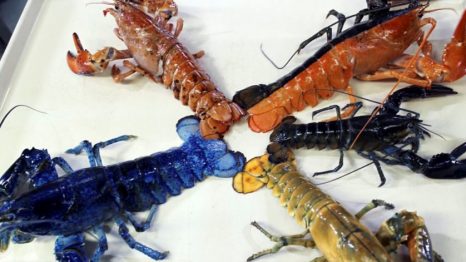
Orange, yellow, blue, and even ‘Halloween’: The rarest lobster colors, explained
It may feel like a new, brightly colored lobster has been pulled off the New England coast and onto your social media feeds every other week over the last few months. Maybe you’ve seen a rare, blue lobster before. But what about yellow? Or the ghostly, one-in-100-million white lobster caught last month in Maine? However, according to New England Aquarium spokesman Tony LaCasse, this has actually been a “slow summer.” Ever wonder why lobsters come in so many distinct colors? Here’s why. click here to read the story 09:01
Bycatch Reduction Engineering Program – 2017 Awards
 NOAA Fisheries has awarded more than $2.3 million to partners around the country to support innovative bycatch reduction research projects through its . Bycatch of various species–fish, marine mammals, or turtles–can have significant biological, economic, and social impacts. Preventing and reducing bycatch is a shared goal of fisheries managers, the fishing industry, and the environmental community. click here to read the notice 14:10
NOAA Fisheries has awarded more than $2.3 million to partners around the country to support innovative bycatch reduction research projects through its . Bycatch of various species–fish, marine mammals, or turtles–can have significant biological, economic, and social impacts. Preventing and reducing bycatch is a shared goal of fisheries managers, the fishing industry, and the environmental community. click here to read the notice 14:10
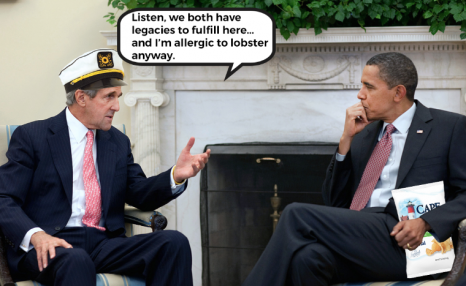
Fishermen, environmentalists continue battle over protected area off Cape Cod
Environmentalists often work with fishermen to reach a middle ground that benefits the environment and eases the regulatory burden on the industry. (baloney) The Environmental Defense Fund, for instance, has partnered with fishermen, both locally and nationally, absorbing some of the cost of new equipment to make electronic monitoring of catches at sea a feasible alternative. But there’s little consensus when it comes to the country’s newest marine park. You either agree there is an urgent need to protect the fragile ecosystems and inhabitants of the 5,000-square-mile Northeast Canyons and Seamounts Marine National Monument, located roughly 130 miles southeast of Cape Cod, or you side with many of the region’s fishermen, who are worried this could be precedent-setting: the first in series of permanent closures in which they have little say. click here to read the story 08:08
Scientist blames fishing gear for fewer right whale births
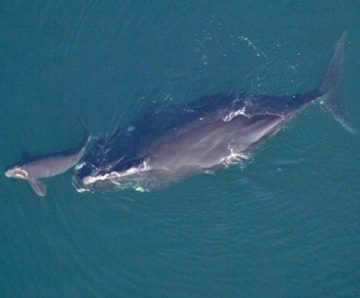 A study recently published in the journal Frontiers in Marine Science says that, despite efforts by fishermen and federal fisheries management authorities, more right whales than ever are getting tangled up in fishing gear. The study also states that injuries and deaths from those incidents “may be overwhelming recovery efforts” for the endangered right whale population. In the report published in July, lead author Scott Kraus, a whale researcher at the New England Aquarium in Boston, says that while the population of whales has increased from fewer than 300 in 1992 to about 500 in 2015, births of right whales have declined by 40 percent since 2010. Read the rest here 18:34
A study recently published in the journal Frontiers in Marine Science says that, despite efforts by fishermen and federal fisheries management authorities, more right whales than ever are getting tangled up in fishing gear. The study also states that injuries and deaths from those incidents “may be overwhelming recovery efforts” for the endangered right whale population. In the report published in July, lead author Scott Kraus, a whale researcher at the New England Aquarium in Boston, says that while the population of whales has increased from fewer than 300 in 1992 to about 500 in 2015, births of right whales have declined by 40 percent since 2010. Read the rest here 18:34
Recreational Cod study aims to help fish crisis
 With cod at historically low population levels and commercial fishermen limited to landings that are just a fraction of what they once were, the recreational catch is now believed to account for as much as one-third of total landings of Gulf of Maine cod. But recreational landings data was considerably poorer than the commercial data, which made it hard to estimate their true impact on the population or know the effectiveness of regulatory measures. Solving the cod crisis will take a lot of research, (of course!) Read the article here 12:04
With cod at historically low population levels and commercial fishermen limited to landings that are just a fraction of what they once were, the recreational catch is now believed to account for as much as one-third of total landings of Gulf of Maine cod. But recreational landings data was considerably poorer than the commercial data, which made it hard to estimate their true impact on the population or know the effectiveness of regulatory measures. Solving the cod crisis will take a lot of research, (of course!) Read the article here 12:04
Enviro Lobby’s Coordinated Efforts to back door NE Marine Monument’s exposed!
 One month ago, environmental groups were strategizing over their latest bid: Get the Obama administration to create its first marine monument off New England. They had talks with fishing groups, lawmakers and think tanks. At the end of August, they exchanged emails over their progress — and in one, the president of the Conservation Law Foundation warned everyone to keep quiet about the possibility of a breakthrough at the upcoming Our Ocean Conference in Chile. The email showed up in response to a public records request that Saving Seafood filed with the office of Maine Gov. Paul LePage’s. Read the rest here Read the email’s here 08:40
One month ago, environmental groups were strategizing over their latest bid: Get the Obama administration to create its first marine monument off New England. They had talks with fishing groups, lawmakers and think tanks. At the end of August, they exchanged emails over their progress — and in one, the president of the Conservation Law Foundation warned everyone to keep quiet about the possibility of a breakthrough at the upcoming Our Ocean Conference in Chile. The email showed up in response to a public records request that Saving Seafood filed with the office of Maine Gov. Paul LePage’s. Read the rest here Read the email’s here 08:40
Saltonstall-Kennedy Grant Program – 900K for UMass Dartmouth fisheries research
 The National Oceanic and Atmospheric Administration has recommended a dozen Massachusetts-based marine research programs receive funding this year including more than $900,000 for UMass Dartmouth to conduct four projects whose aim is to improve the cost-effectiveness and capacity of programs to observe fish. Other Massachusetts research projects recommended for funding include: $497,060 for the Coonamessett Farm Foundation, $774,640 for four New England Aquarium Read the rest here 19:35
The National Oceanic and Atmospheric Administration has recommended a dozen Massachusetts-based marine research programs receive funding this year including more than $900,000 for UMass Dartmouth to conduct four projects whose aim is to improve the cost-effectiveness and capacity of programs to observe fish. Other Massachusetts research projects recommended for funding include: $497,060 for the Coonamessett Farm Foundation, $774,640 for four New England Aquarium Read the rest here 19:35
Overwhelmed with turtles, aquarium even uses airlift
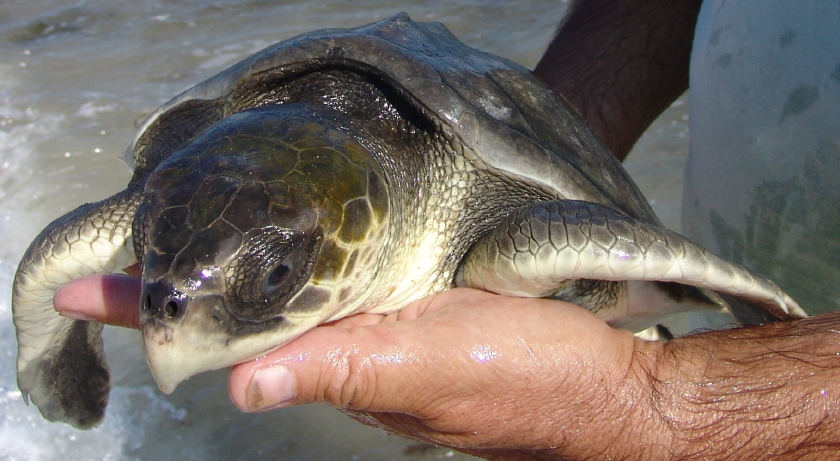 This year, nearly 1,000 endangered sea turtles have been recovered from Cape Cod Bay beaches, and the turtle pipeline is full. The New England Aquarium, the regional destination for injured and cold-stunned turtles, has already treated nearly 400 animals, almost double the record for a full year. Read the rest here 08:07
This year, nearly 1,000 endangered sea turtles have been recovered from Cape Cod Bay beaches, and the turtle pipeline is full. The New England Aquarium, the regional destination for injured and cold-stunned turtles, has already treated nearly 400 animals, almost double the record for a full year. Read the rest here 08:07


































